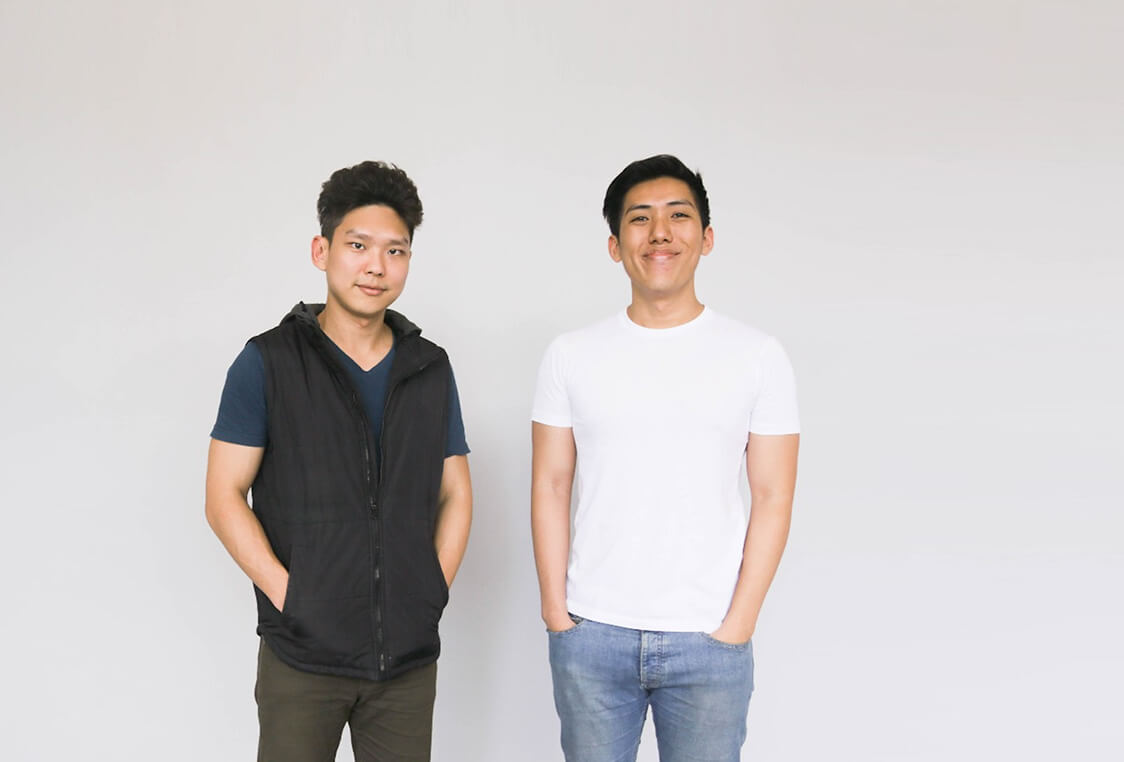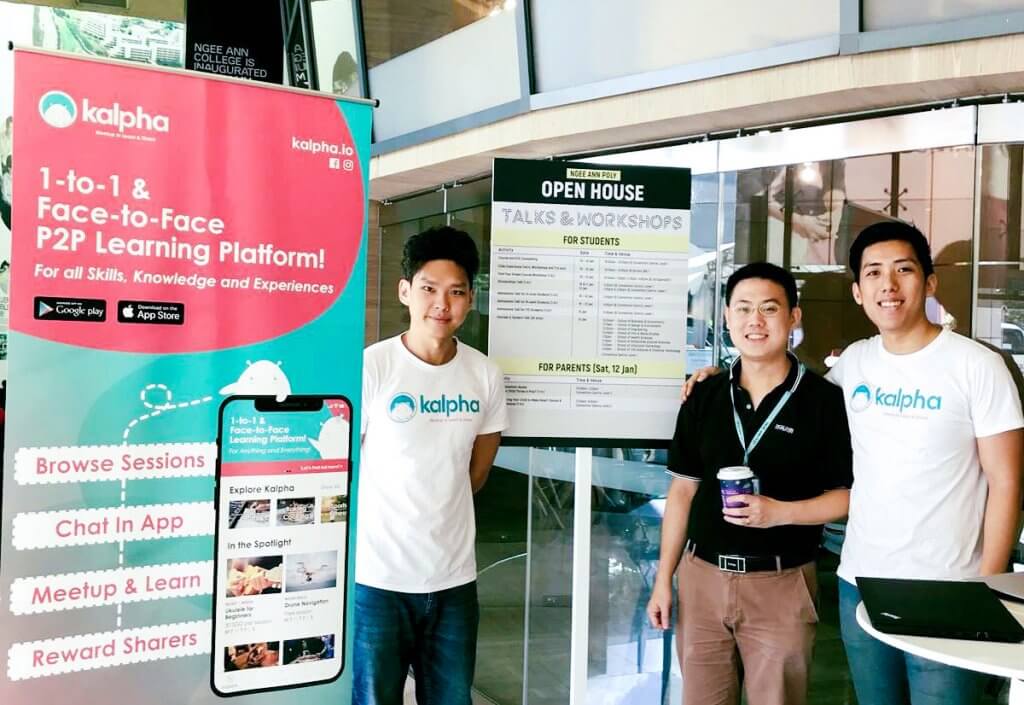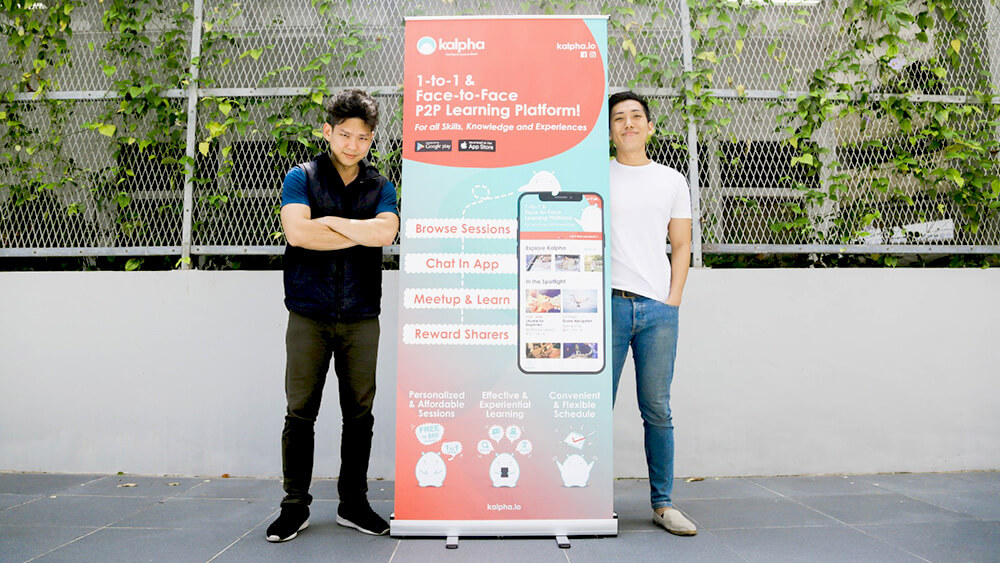
[Feature image: SMU alumnus Jaden Teo (right) and his co-founder]
Four years of university, get a degree, get a job. For most graduates, this would be the tried-and-tested journey to building a career; but for Jaden Teo, this never did seem quite enough. So when opportunity came knocking, the SMU Kalpha.
We sit down to a chat with Jaden to find out more about his startup and where he believes the road will take them next.
Hi Jaden! Can you share with us about some of the activities you were involved in while studying in SMU?
Jaden: As a typical student of SMU, I had a hectic life! I was very much involved in numerous school activities such as representing SMU’s Muay Thai club as the vice president, and participating in case competitions. Furthermore, I was given the opportunity to travel to Kazakhstan for my overseas university exchange programme at KIMEP University. It is arguably the best part of my life in SMU.
While studying in the What is your view on the importance of education?
Jaden: Growing up in a humble family, I strongly believe that having access to education can change one’s life for the better. Of course, that is provided that one puts in the necessary hard work. I’ve experienced first-hand how education has changed my life for the better. In my opinion, no one should be denied the opportunity to acquire new skills, knowledge and experiences due to the lack of financial resources or personal connections. I’m glad that there are various financial assistance and scholarship options available for SMU students. For myself, I was fortunate to have received two years of bursary support from SMU, as well as the Ngee Ann Kongsi Scholarship. Jaden: After graduating from SMU, I worked as a Management Consultant in a global technology and consulting firm. However, when a valuable opportunity came knocking on my door, especially one that I felt could significantly impact and create value in our society, I decided to take the plunge. Hence, together with Jack, my decade-old friend and business partner, we started Kalpha. Jack had gone to Melbourne to pursue his bachelor’s degree after his National Service. After graduation, he started a Chinese restaurant and eventually sold it at a premium two years later. During his time as a restaurateur, he met multiple mentors who imparted valuable knowledge on running a better business. For Jack, he was lucky to have met these mentors under serendipitous circumstances. And this sparked was what sparked the idea: How can people in need reach out to mentors and coaches in a more efficient manner? With this idea in mind, we teamed up and conceived Kalpha, a peer-to-peer mobile application where individuals can discover, connect, and meet up to learn and share skills, experiences, and knowledge one-to-one, in a time-flexible and budget-friendly manner. Kalpha is not our first attempt at entrepreneurship together. When we were attending Ngee Ann Polytechnic, we co-founded a dedicated third-party procurement company and made respectable revenue from the operations.How did Kalpha get started?

Kalpha’s exhibition in Ngee Ann Polytechnic
Tell us more about Kalpha.
Jaden: The vision for Kalpha is to make learning personalised and affordable for everyone. Even in a digital age where almost everything can be found online, having access to personalised mentorship and coaching can be much more valuable for individuals.
We also believe that learning face-to-face in an offline setting offers people the opportunity to connect on a much deeper level, without making mentorship and coaching feel like a transactional relationship.
Sharers (mentors/coaches) and learners can connect with each other via the chat function in Kalpha, and have the flexibility to arrange their own date, time and venue for their sharing session, at their convenience. Sharers also have the option to either share their skills, knowledge or experiences for free, or even at a fee.
What steps has Kalpha taken to build up traction?
Jaden: In the early stages of user acquisition, we went for several meetups and events to connect with potential sharers and learners. To make onboarding smoother, we would drop a personal call and/or message every single sharer as a gesture of appreciation and also to ensure that the listing of sharing sessions is as seamless as possible.
What are the challenges that Kalpha has faced?
Jaden: The opportunity costs of not having a full-time job were significant. Much of our time was devoted to building the business, so much so that our social and family life were almost negligible. Being prudent on our resources and bootstrapping was also one of the many challenges we endured to achieve the maximum outcome for Kalpha.
How’s Kalpha doing at the moment?
Jaden: Kalpha was officially launched on the Apple App Store and Google Play Store in January 2019 and the platform has acquired more than 4,000 downloads and 300 listings as of March 2019.
There are currently eight different categories released, namely Music and Media, Arts and Craft, Sports and Fitness, Baking and Cooking, Careers and Finances, Languages, Life Experiences, as well as Niche Skills which includes sharing sessions such as memory training and drone flying.
We have currently closed our seed round of private fundraising, and have been awarded the Startup SG Founder Grant by Enterprise Singapore, which we believe will help accelerate Kalpha’s growth.

Jack Soh (Left) and Jaden Teo (Right)
What are your plans for Kalpha going forward?
Jaden: We are currently focusing our efforts on user acquisition in Singapore, while developing more functionalities such as a scheduling system, gifting and gamification features.
Singapore is merely a launching pad for Kalpha as our vision is set towards expanding our user base across the whole of Southeast Asia. In our pipeline are plans to enter the Vietnam and Myanmar market.
What advice do you have for young undergraduates who are deciding on their career path?
Jaden: In the eyes of most people, steering away from a conventional career path is often frowned upon. Furthermore, the pressure to ‘follow the herd’ is very real, especially when you watch as peers enter the workforce in an MNC and scale the corporate ladder.
However, I’ve come to realise that we should not be overly bothered by external voices and others’ opinions of you. Sincerely pursue what you truly believe in, bearing in mind your personal risk appetite and threshold due to various personal circumstances (financial, family, personal, etc.).
Living a life with no (minimal) regrets is a recent guideline that I’ve started living by. Life is too short. So make the best out of every bit of it!

